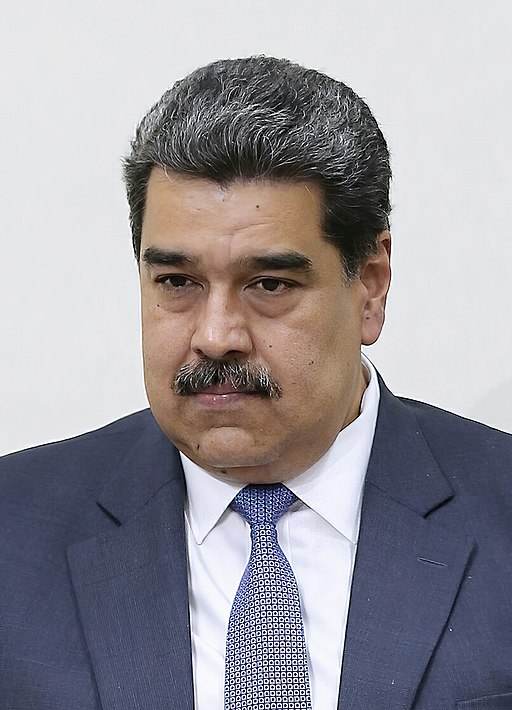With 80% of votes counted, the government-controlled electoral authority declares Maduro the victor, despite opposition claims and regional scepticism
In a dramatic turn of events, Nicolás Maduro has been declared the winner of Venezuela’s presidential election by the government-controlled National Electoral Council. The announcement, made after a six-hour delay, claimed that Maduro secured 51.21% of the vote against 44.2% for his rival, Edmundo González Urrutia. With around 80% of the votes counted, Maduro received over 5 million votes compared to González’s 4.4 million.
Addressing his supporters in Caracas, Maduro proclaimed, “I am Nicolás Maduro Moros – the re-elected president of the Bolivarian Republic of Venezuela. I will defend our democracy, our law, and our people.” The 61-year-old president dedicated his victory to his mentor, the late Hugo Chávez, stating, “Long live Chávez. Chávez is alive!”
Embed from Getty ImagesMaduro’s victory was met with celebrations from his allies. Cuban leader Miguel Díaz-Canel Bermúdez hailed the result as a “historic victory” and a triumph of the Venezuelan people’s courage. Bolivia’s Luis Arce echoed this sentiment, celebrating the result as a tribute to Chávez on what would have been his 70th birthday.
However, the result has been met with widespread scepticism and condemnation from both domestic and international observers. The US Secretary of State, Antony Blinken, expressed serious concerns about the results, suggesting they might not reflect the true will of the Venezuelan people. “It’s critical that every vote be counted fairly and transparently,” Blinken emphasized.
Chile’s President Gabriel Boric and Peru’s Foreign Minister Javier González-Olaechea also rejected the result, questioning its validity. Costa Rica and Uruguay joined in the condemnation, with Uruguay’s President Luis Lacalle Pou criticizing the process as “clearly flawed.”
The Venezuelan opposition, led by María Corina Machado, has vehemently contested the result. Machado, who supported González’s campaign, claimed that the opposition had won in every state and labelled the election result as a blatant manipulation. “We won and everybody knows it,” she declared, asserting that González should be recognized as the country’s president-elect.
The election result is a severe blow to the Venezuelan opposition, which had rallied around González, a 74-year-old former diplomat and political novice. The opposition had hoped that González’s candidacy could lead Venezuela out of its deepening economic and social crisis, exacerbated under Maduro’s rule.
Venezuela has been grappling with severe economic hardships and political repression under Maduro’s government. The economic crisis, coupled with widespread political discontent, has driven millions of Venezuelans to flee the country. As election day unfolded, many voters expressed hope for change, while others remained sceptical of the election’s fairness.
José Martínez, a supporter of Maduro, praised the president for his past support, stating, “He helped my family and I cannot let him down.” In contrast, voters like Anabella Donzella voiced fears that change might not be achievable, given the backdrop of the country’s political turbulence.
Maduro, who first came to power following Chávez’s death and faced criticism for his 2018 re-election, framed the election as a historic struggle. Describing the contest as a modern “Battle of Carabobo,” Maduro vowed to uphold his legacy and continue Chávez’s vision.
As the election authority’s results were officially announced, tension remained high. The international community, including the US Vice President Kamala Harris, has voiced support for the Venezuelan people’s right to a fair electoral process, emphasizing that their will must be respected.
Analysis
Political Perspective Nicolás Maduro’s declared victory has intensified political tensions in Venezuela, revealing deep divisions within the country. The election, marred by delays and accusations of fraud, underscores the enduring polarization between Maduro’s government and the opposition. The opposition’s rejection of the results highlights ongoing struggles for democratic legitimacy and governance. Maduro’s ability to maintain power despite significant domestic and international dissent emphasizes the entrenched nature of his regime and the challenges faced by opposition forces.
Social Perspective The election result reflects broader societal discontent and division in Venezuela. The opposition’s mobilization around Edmundo González Urrutia highlights a yearning for change amid economic despair and political repression. The stark contrast between the jubilant celebrations of Maduro’s supporters and the frustration of opposition voters illustrates the deep societal rifts. The political environment continues to be shaped by significant public dissatisfaction, economic hardship, and the quest for democratic reforms.
Economic Perspective The election’s outcome is critical in the context of Venezuela’s ongoing economic crisis. Maduro’s presidency has been marked by severe economic difficulties, including hyperinflation, food shortages, and a deteriorating standard of living. The opposition’s focus on economic recovery under González reflects widespread concerns about the country’s economic trajectory. The result could influence future economic policies and international economic relations, particularly as Venezuela seeks relief from its economic struggles.
Gender Perspective The impact of the election on gender issues is less direct but noteworthy. Women, like their male counterparts, are affected by the political and economic crises in Venezuela. The gender dynamics of the protest and support for candidates could influence broader discussions on women’s rights and political participation. The involvement of women in both supporting and opposing camps reflects their critical role in the country’s political landscape.
Racial Perspective The election’s impact on racial dynamics is less pronounced but relevant. Venezuela is a diverse country with various ethnic groups, and political outcomes can affect different communities in distinct ways. The political and economic challenges faced by the country can have varying impacts across racial and ethnic lines, influencing how different groups experience and respond to the political climate.
